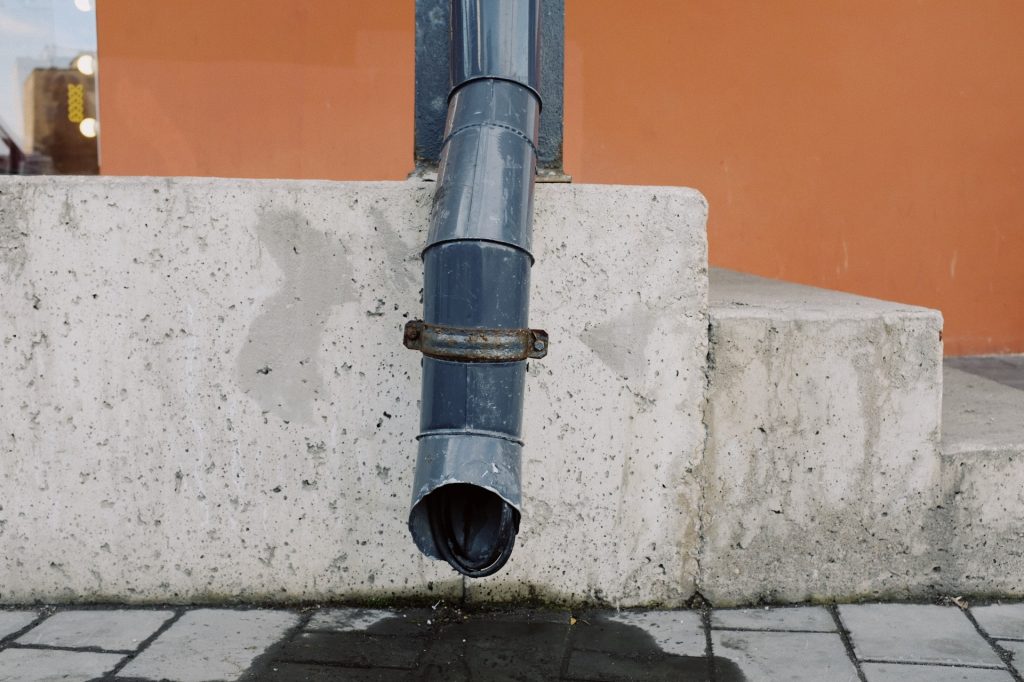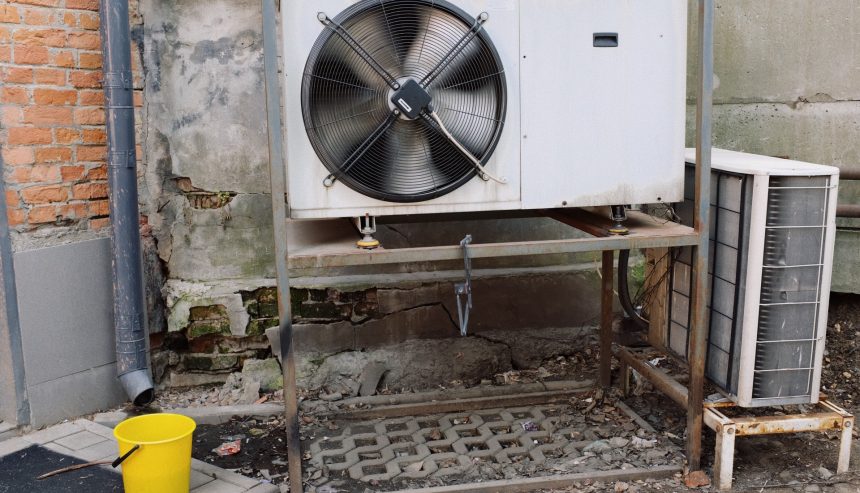In this article, we will guide you on how to prevent potential HVAC water damage. While this might seem more common than most people think, clogged condensation lines or faulty drainage pans, any sign of moisture should not be ignored as it could lead to major repairs.
Having a home with an HVAC system can be like playing with fire. Just as you need to be careful when handling open flames, it’s also important to take precautions to avoid water damage from your HVAC unit. Without taking the right steps, this damage can sneak up on homeowners and cause serious problems ranging from mold growth to higher utility bills.
Detecting Signs Of HVAC Water Damage
The sight of dripping water from the ceiling or a puddle on the floor is enough to send shivers down any homeowner’s spine. This indicates water damage due to HVAC (Heating, Ventilation & Air Conditioning) systems, and it needs immediate attention. Detecting signs of HVAC water damage can help identify potential problems before they become worse.
- First and foremost, one should check for visible evidence of standing water, such as leaking pipes, flooded basements, soggy carpets, discolored walls, and ceilings.
- Other clues may include odors from vents or wet spots along walls where condensation has accumulated. It’s also important to inspect areas around windowsills and doorframes for moisture buildup caused by humidity levels in the house being too high.
Any signs of leaks should be taken seriously and addressed immediately, as neglecting them can lead to more serious issues like mold growth which is hazardous to health. However, if you find yourself in this position, don’t panic – there are steps you can take to quickly diagnose and repair the source of the water damage so your home remains safe and comfortable for years to come.
Diagnosing And Repairing The Source Of Water Damage
Once a homeowner has detected signs of water damage, the next step is to diagnose and repair the source. This process can be complicated for inexperienced homeowners and requires knowledge of plumbing systems.
- To start, it’s important to identify the exact location where the leak is coming from – whether that’s indoors or outdoors.
- Once identified, several potential causes need to be investigated. For example, if a pipe leading into the HVAC system appears worn out or rusted, replacing this may fix the issue.
- Additionally, if any valves appear damaged, they should be replaced as soon as possible. More complex issues, such as blocked drains, might need further investigation if these solutions don’t work.
- In this case, you need professional assistance to avoid causing additional damage through an incorrect diagnosis or repair attempt.
Repairing water damage prevents future problems and ensures efficient operation of your HVAC unit – saving time and money. With careful attention and maintenance, homeowners have taken adequate steps toward avoiding costly repairs in the future.
Preventive Measures For Avoiding Water Damage

A classic example of water damage from HVAC is a leak in the basement caused by an improperly installed condensation drain line. In this case, the homeowner had to pay for repairs and potential damages caused by prolonged exposure to moisture and mold growth. Again, preventive measures are the best way to avoid such costly and frustrating situations.
- First, it’s important to inspect all components of your HVAC system regularly to identify any small issues before they become bigger problems.
- Checking your air filter every month or two will help ensure that dirt and debris aren’t clogging up the system, which could lead to leaks.
- Lastly, ensure regular servicing from a certified technician who can detect any underlying issues with your system before they cause major trouble.
By taking these proactive steps, homeowners can save time and money while maintaining their HVAC systems in peak condition. Doing so will reduce their risk of experiencing costly water damage due to malfunctioning equipment and increase their energy efficiency savings over time.
Cleaning And Caring For HVAC Systems To Prevent Water Damage
Taking preventive measures is always a good idea before the problem arises. Inspecting and cleaning HVAC systems regularly can be just as important as getting vaccinated against an illness. While it may seem tedious, this task can save homeowners from extensive water damage in the future.
- First and foremost, check for any clogs or blockages that could cause problems with drainage within your system. If you notice any debris buildup, clear out those areas right away.
- Keep a close eye on the condensate pan; if it begins to rust or accumulate mold, replace it immediately so that no further damage is done.
- Pay attention to any signs of moisture accumulation around air vents – these are usually indicative of broken seals, which should also be addressed quickly.
These steps will help ensure your HVAC unit runs at its peak performance while avoiding potential water damage issues down the road. Taking such precautions will give you peace of mind knowing your home is safe and secure from unwanted property damages due to neglectful maintenance habits.
Professional property restoration services are required to detect and repair these damages.
Professional Services Available For Detecting And Repairing Water Damage from HVAC
When it comes to the issue of water damage, prevention is key. Proper maintenance and cleaning can help protect your HVAC system from potential water damage. But suppose you suspect something is wrong with your HVAC system or have already experienced a leak. In that case, professional services are available for detecting and repairing any existing water damage.
A qualified technician will use specialized tools and equipment to test various parts of your HVAC system to locate any leaks or other signs of damage. These professionals may also inspect the ductwork, insulation, condensate drain lines, thermostat wiring, and other components associated with the system. The technician will then provide a detailed report outlining their findings and recommendations for repairs or replacement parts that must be addressed to prevent further issues.
It’s important not to address any suspected water damage as this can cause serious problems such as mold growth, structural damage, and even fire hazards. Taking care of these issues sooner rather than later is essential for protecting your home and its occupants. Professional water damage restoration technicians have the skills necessary to identify areas where there could be potential risks so they can address them before they become bigger problems.
Conclusion
In conclusion, the best way for homeowners to avoid HVAC water damage is by taking preventive measures to ensure their system remains in top condition. This includes regularly inspecting and cleaning their units and scheduling professional maintenance checks every few years. Taking these steps can help homeowners diagnose potential issues before they become larger problems down the line.
Furthermore, homeowners need to be aware of any signs of water damage so they can take action quickly if an issue arises. By understanding how to detect and repair the source of the damage, home, and business owners are better equipped to safeguard against further damage and costly repairs.
Finally, when dealing with a more serious case of HVAC-related water damage, many people feel overwhelmed or unsure about what steps to take next – which begs the question: why not seek professional assistance? In doing so, individuals can benefit from experienced guidance that ensures their systems remain safe and operational throughout their lifetime.
If you need water damage remediation services, PuroClean in Zephyrhills is here to address your needs. Contact us right now so we can have one of our team members assess your needs and avail yourself of our services.

 PuroClean Certified Restoration Specialists
PuroClean Certified Restoration Specialists